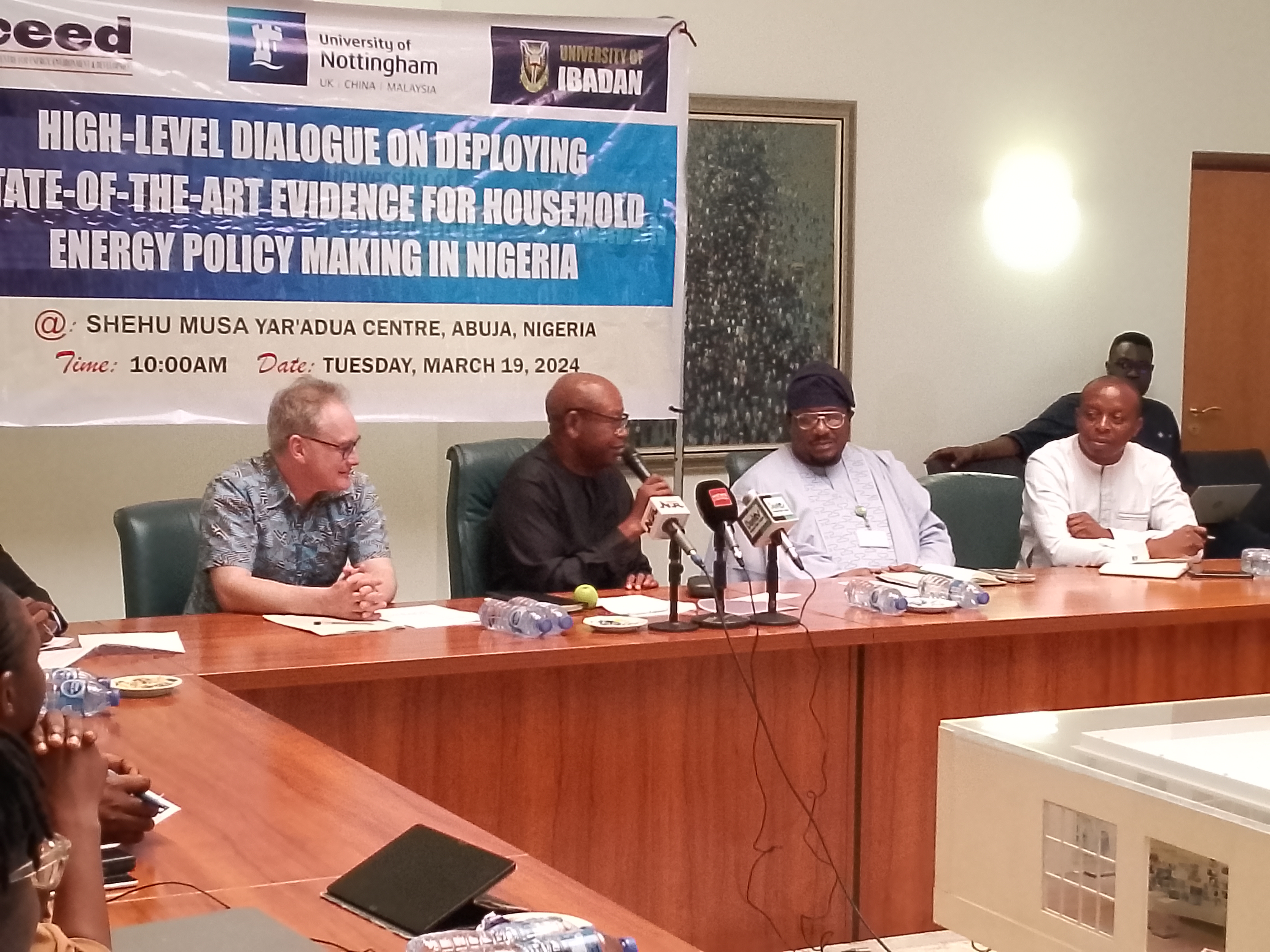Amidst Nigeria’s commitment towards providing lasting solutions to household energy crisis through the recently drafted National Clean Cooking Policy facilitated through key state actors in the country, stakeholders have further moved to deploy state-of-the-art evidences towards enhancing the smooth implementation of this critical policy.
Ewah Eleri, Executive Director, International Centre for Environment and Energy Development (ICEED) while speaking at a high level dialogue in Abuja organized in partnership with University of Nottingham, United Kingdom as well as other major stakeholders in the energy sector in Nigeria, yesterday, emphasized the need for such a high level discussion amongst key stakeholders, as it would provide a platform for joint learning and action by researchers, policy makers and practitioners working in the clean cooking space.
Ewah, in his words, said: though, Draft National Clean Cooking Policy was informed by credible evidence obtained through economic and social research, including the modelling of future scenarios for expanding access and its impacts on health and environment. Nonetheless, there remains scope for integrating the latest evidence into stakeholder discussions around the draft policy.
“This latest evidence would, amongst other things, strengthen the engagement between scientific, policy and societal actors on the issue of clean cooking.” he said.
Dr Mike Clifford, a renowned academic and a representative from University of Nottingham who spoke glowingly with optimism about expected positive impacts that such a dialogue would bring forth in the implementation of Clean cooking policy in Nigeria, said it might be slow yet dependable policy to adopt.
In his words, “This dialogue is imperative as it seeks to add value to the Cook Stove sector in Nigeria, by addressing the unavailability and inaccessibility of clean cook stoves to the larger population. It will further help in tackling the health implications associated with using non-clean cook stoves particularly amongst the women and girls in Nigeria”.
Clifford also had couple of his past Nigerian PhD Students made insightful presentations on the research outcomes of their thesis on Cookstoves Sector in Nigeria and the strategies to deploy in mitigating the challenges facing this critical sector at the meeting.
Deborah Ayodele-Olajire, an academic from University of Ibadan, who also made an insightful presentation on strategies to adopt in achieving effective implementation of national policy on Clean cooking in Nigeria shared few actionable strategies to adopt.
“For effective implementation of Clean cooking policy, there’s need to ensure greater transparency in distribution and proper inclusion of key stakeholders.
“There would be need for clear strategies to ensure that people actually adopt the clean cook stoves. Also there is need to explore the opportunities to develop local industries rather than planning to import these cookstoves” Olajire said.
